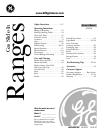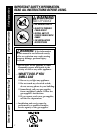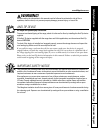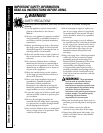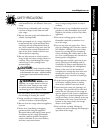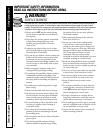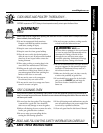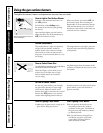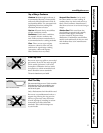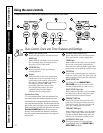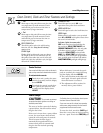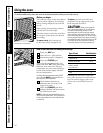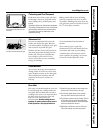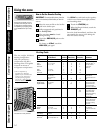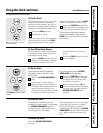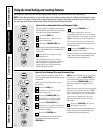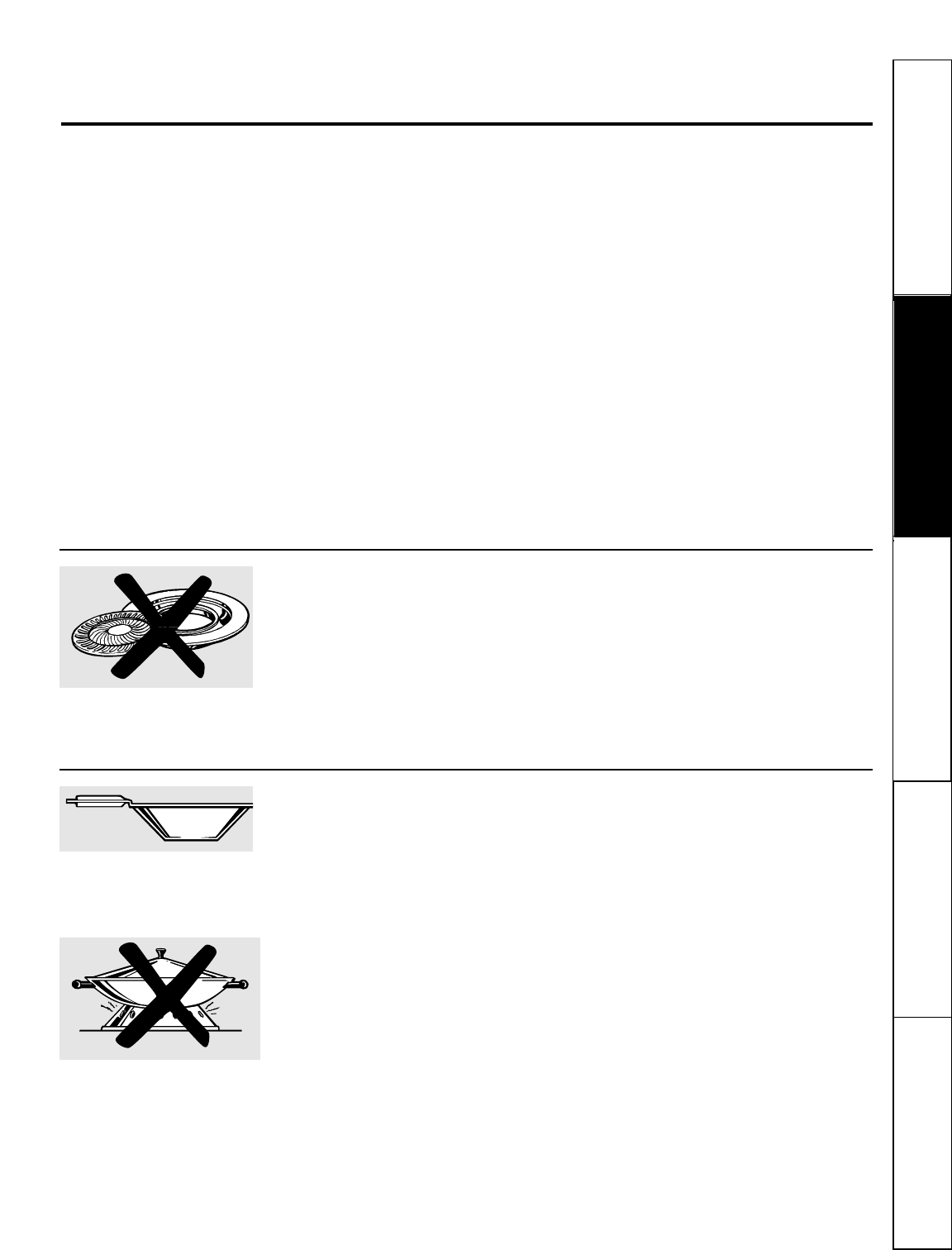
9
Safety Instructions
Operating Instructions
Safety Instructions
Operating Instructions Care and Cleaning
Troubleshooting Tips Consumer Support
www.GEAppliances.com
Wok This Way
We recommend that you use a 14-inch or smaller
flat-bottomed wok. They are available at your
local retail store. Make sure the wok bottom
sits flat on the grate.
Only a flat-bottomed wok should be used.
Do not use a round-bottomed wok on a
support ring. Placing the ring over the
burner or grate may cause the burner
to work improperly, resulting in carbon
monoxide levels above allowable
standards. This could be dangerous
to your health.
Use a flat-bottomed wok.
Stove Top Grills
Do not use stove top grills on your sealed
gas burners. If you use the stove top grill
on the sealed gas burner, it will cause
incomplete combustion and can result
in exposure to carbon monoxide levels
above allowable current standards.
This can be hazardous to your health.
Top-of-Range Cookware
Aluminum: Medium-weight cookware is
recommended because it heats quickly
and evenly. Most foods brown evenly in
an aluminum skillet. Use saucepans with
tight-fitting lids when cooking with
minimum amounts of water.
Cast-Iron: If heated slowly, most skillets
will give satisfactory results.
Enamelware: Under some conditions,
the enamel of some cookware may
melt. Follow cookware manufacturer’s
recommendations for cooking methods.
Glass: There are two types of glass
cookware—those for oven use only
and those for top-of-range cooking
(saucepans, coffee and teapots).
Glass conducts heat very slowly.
Heatproof Glass Ceramic: Can be used
for either surface or oven cooking. It
conducts heat very slowly and cools very
slowly. Check cookware manufacturer’s
directions to be sure it can be used on gas
ranges.
Stainless Steel: This metal alone has
poor heating properties and is usually
combined with copper, aluminum
or other metals for improved heat
distribution. Combination metal skillets
usually work satisfactorily if they are used
with medium heat as the manufacturer
recommends.



